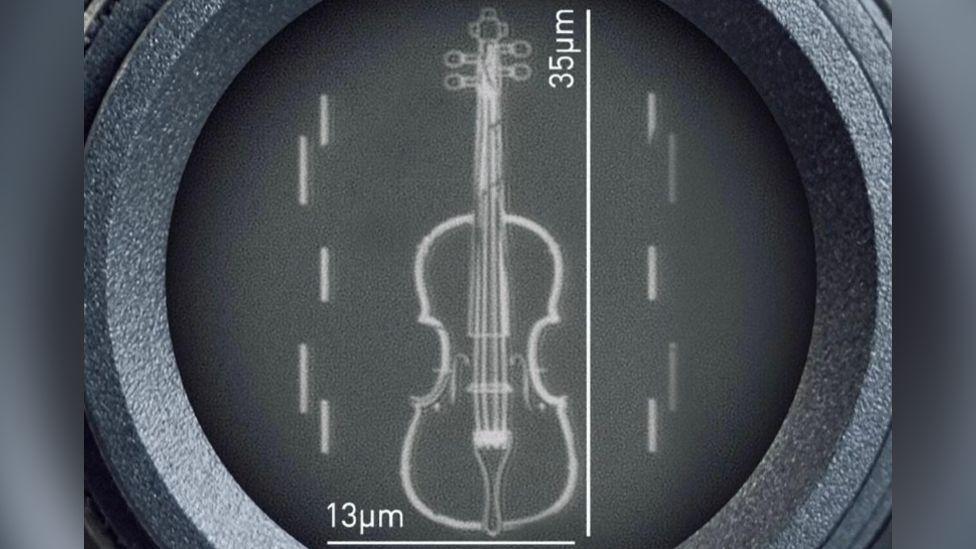Violin and bow maker fears for his craft
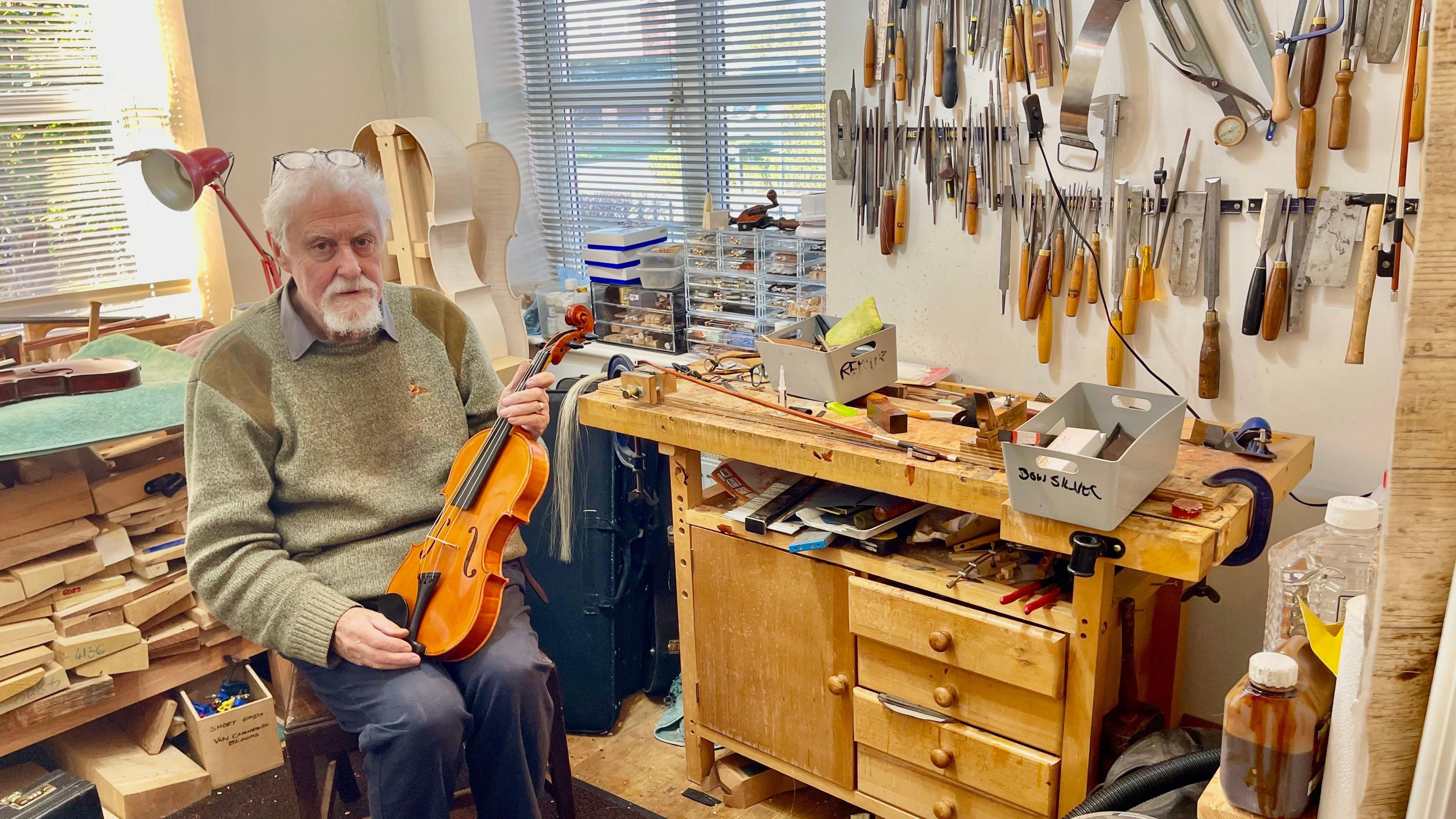
Rudolf Pilsel has made 25 cellos, 35 violas, more than 100 violins and hundreds of bows since the age of 20
- Published
An instrument and bow maker has said an absence of training and ban on materials threatens the future of his industry.
Rudolf Pilsel sold his first violin 52 years ago. He has since worked with the Liverpool Philamonic, Hallé Orchestra and many other renowned musicians.
The craftsman works from his home in Crewe, Cheshire, and has balanced the profession alongside a 27-year career with the Salvation Army.
He said import bans on threatened wood species and other products have made his business harder, and few people were now learning the trade.
"Bow-making as a skill is becoming extremely rare. I think it’s the most precise area of woodworking that there is - you're working down to fractions of a millimetre," he said.
"These are tools that folk need to use for their living," he added.
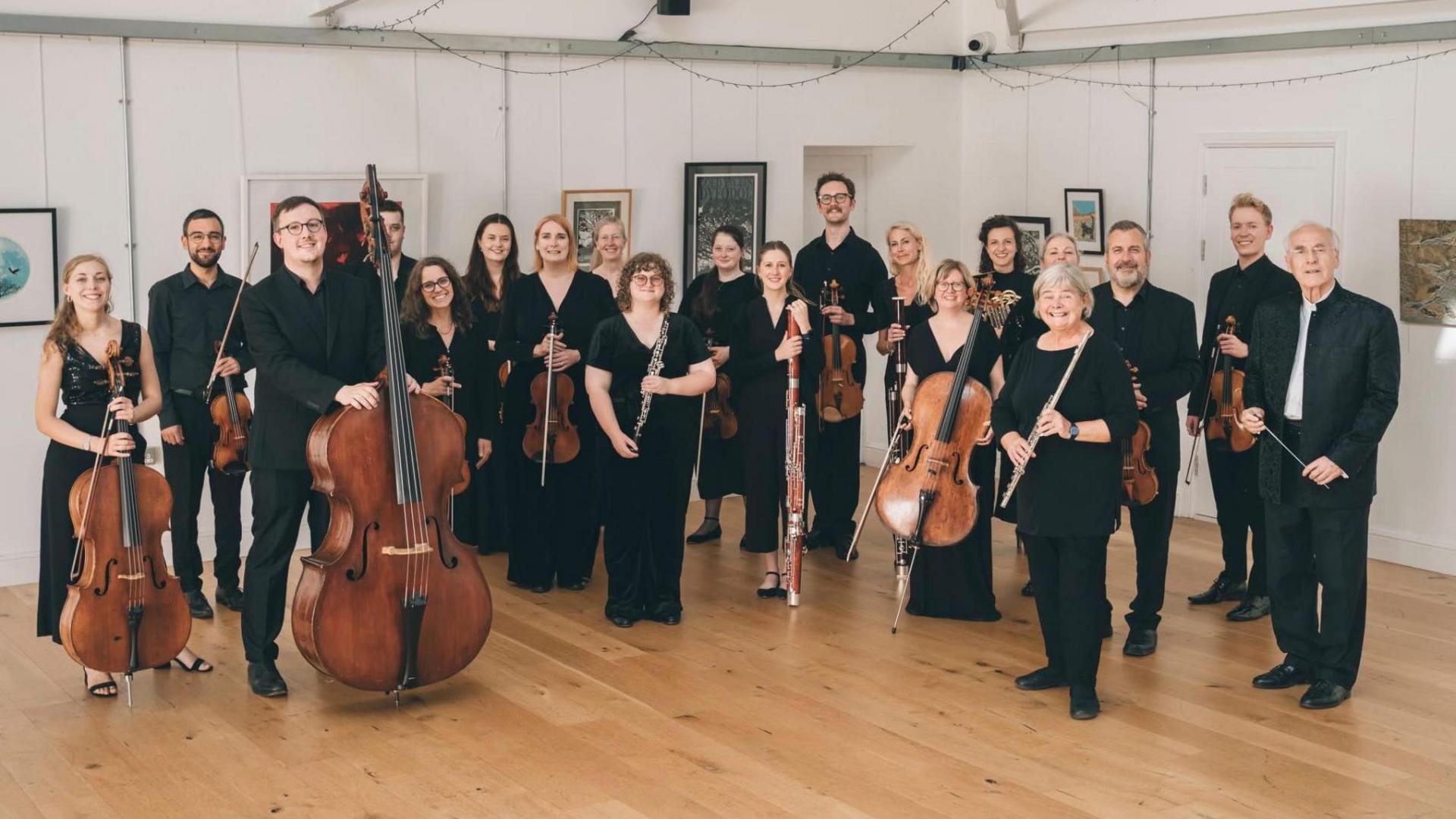
Mr Pilsel has also provided instruments and bows for members of the Welsh Chamber Orchestra
Mr Pilsel sold his first violin to a musician in Wrexham which soon led to commissions from the Royal Academy of Arts and other notable orchestras.
"I was very privileged to make those instruments and they graced the platforms of the Albert Hall and the Wigmore Hall," he said proudly.
Mr Pilsel regards himself as one of the last few independent traders in the country to make and restore both instruments and bows.
"The wood for bow-making now is becoming impossible to get hold of," he explained.
The international trade of Pernambuco wood from Brazil has been restricted since 2007 because of mass deforestation putting the tree at risk of extinction.
Although Mr Pilsel has plenty of stock, which he has to register with the government, he said this had partly led to the decline of bow-making.
"Because of the non-availability of material and also the fact that nowhere teaches bow-making, bow-making as a skill is becoming extremely rare," he stated.
He listed ivory, tortoise shell and whale bone as some of the instrument materials that had been banned during his career.
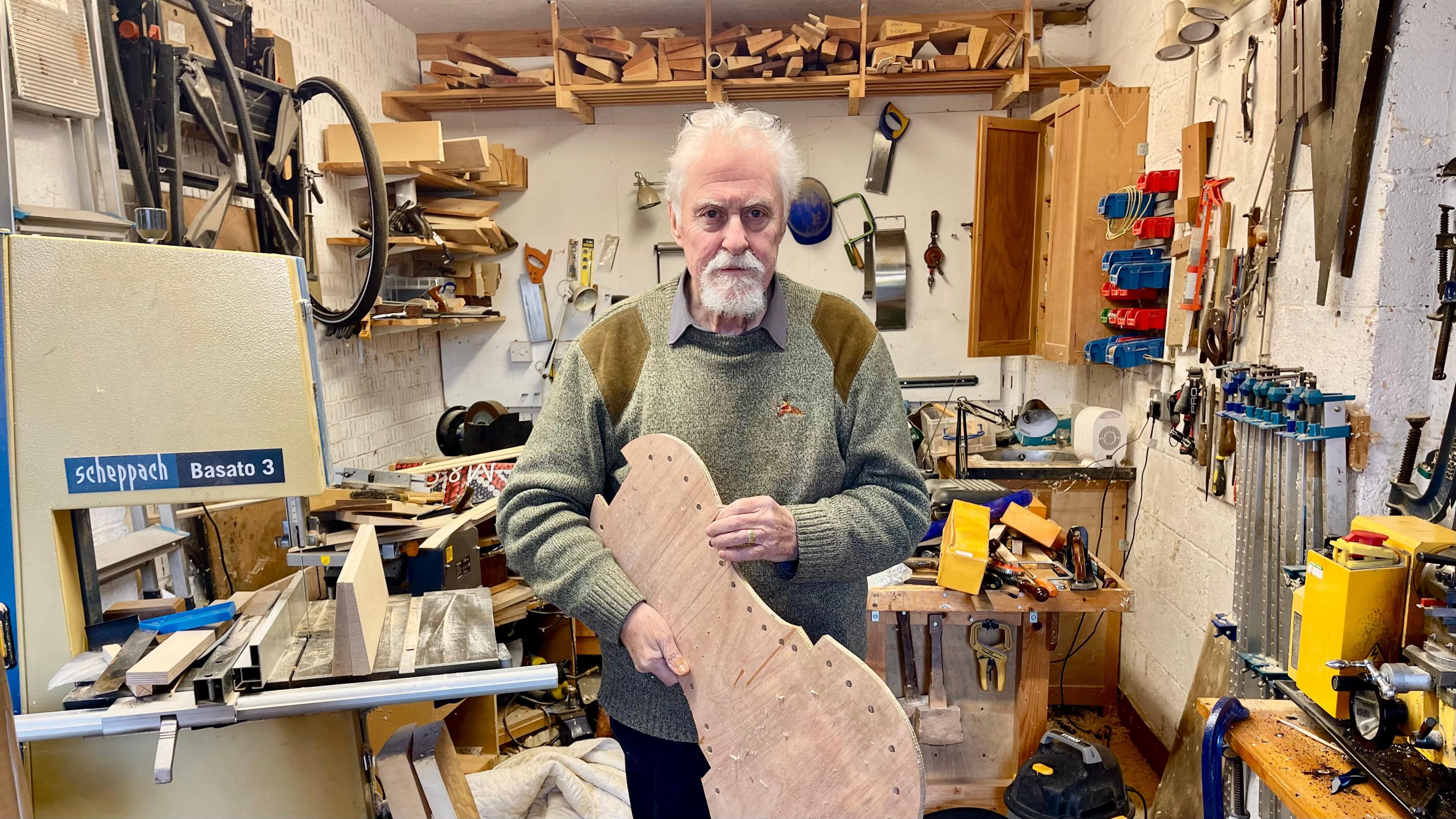
"We're natural born creators. Folk enjoy making stuff," said Mr Pilsel, as he prepared to cut another cello in his garage
Despite his concerns for the future, Mr Pilsel said he still loved his work, making and restoring from his home.
"It's been a real wonderful part of my life and I enjoy it thoroughly," he smiled.
Mr Pilsel is the vice president of the North Staffs Symphony Orchestra where Concert Leader, Helen Corcoran, described him as a “very skilled, kind and helpful man”.
He added: "To see young people playing music and enjoy it as much as they do is a privilege."
- Published23 July
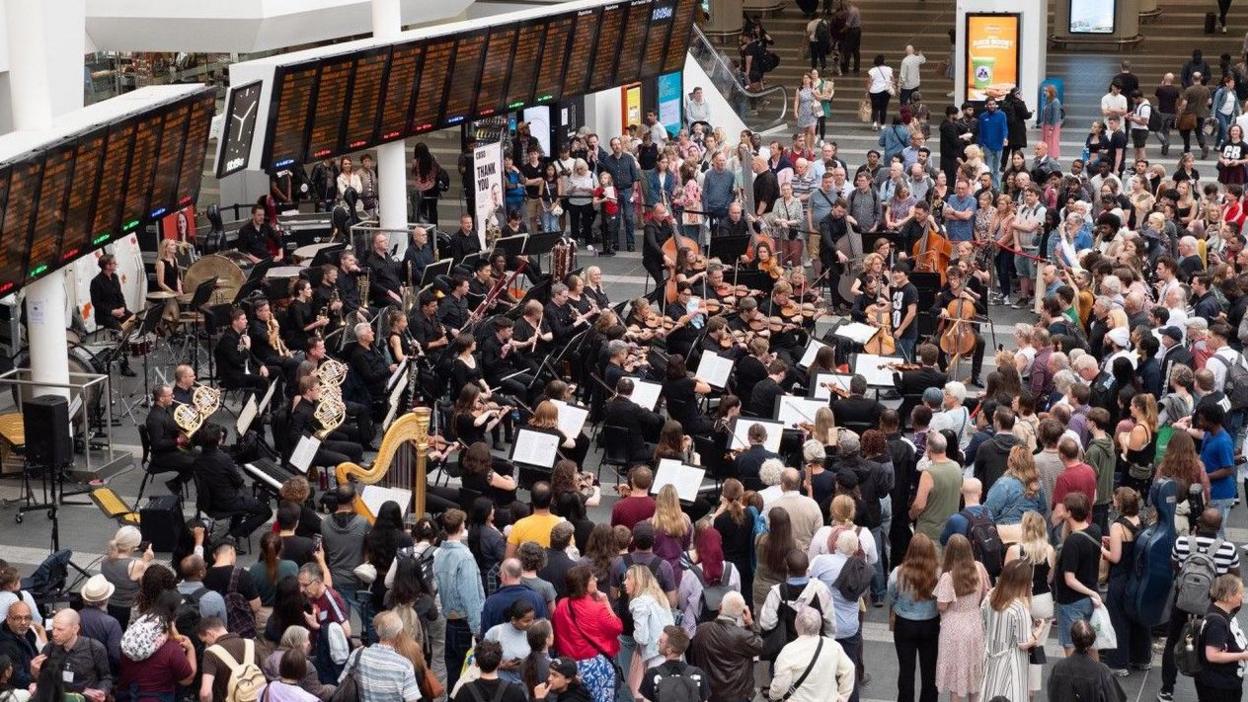
- Published13 October
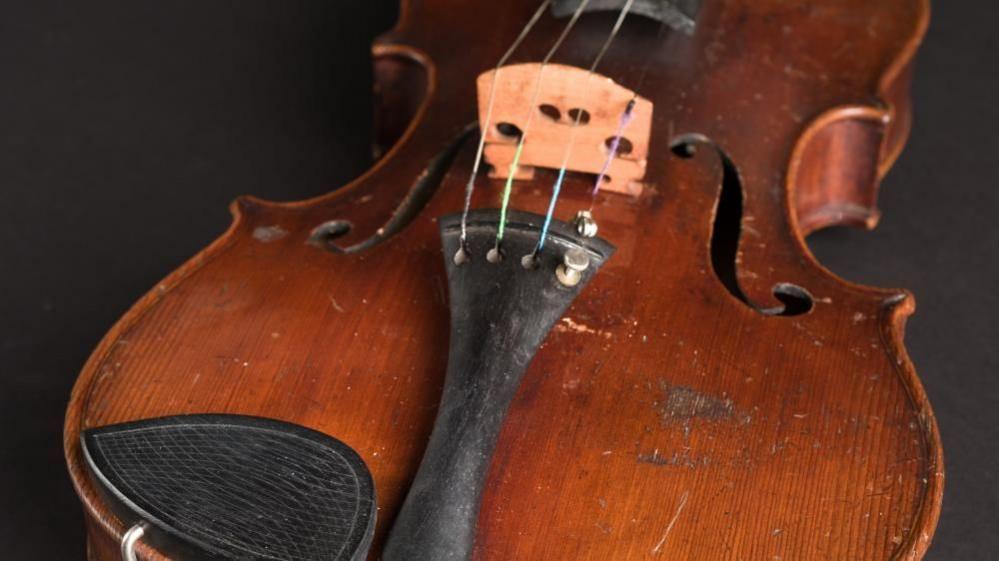
- Published5 June
